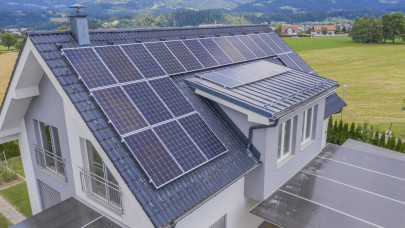"Greenhouse gas emissions (GHGs) include carbon dioxide, methane, nitrous oxide, and fluorinated gases. Among these, six are responsible for carbon dioxide emissions from energy consumption, namely: agriculture and fisheries, buildings, electricity, industry, and transportation (road and off-road). The seventh sector includes methane emissions, nitrous oxide, fluorinated gases, and carbon dioxide emissions from industrial use. To achieve the objective of transitioning to ESG net-zero, the implementation of specific policies such as emissions pricing, which can generate revenues to support this transition, is necessary," the analysis states.
The second report in the OECD series on carbon pricing and energy taxation, "Effective Carbon Rates 2023," published in November 2023, analyzes the situation in 72 countries. The purpose of this report is to evaluate emissions trading systems, fuel excise taxes, and carbon taxes in 2021 and track their evolution in 2022-2023, considering the energy crisis and high inflation rates.
The analysis's objective is based on the goals set in the Paris Agreement, which aims to keep the global average temperature rise well below 2 degrees Celsius above pre-industrial levels and to continue efforts to limit it to 1.5 degrees.
"The climate impact, along with the significant revenues generated from carbon taxation and emissions trading, underscores the critical importance of this issue. Globally, in the period 2020-2021, these revenues reached $56.8 billion, representing approximately 0.07% of global GDP," says Liviu Gheorghiu, Tax Director at Mazars in Romania.
In 2021, more than half of the greenhouse gas emissions in the analyzed countries were not subject to pricing.
The report also highlights asymmetries regarding the level of prices, the scope, and pricing mechanisms such as fuel excise taxes, carbon taxes, and emissions trading systems. The data illustrate that fuel excise taxes cover a greater proportion of emissions and are applied at higher prices compared to carbon taxes and emissions trading systems.
Emissions trading systems are often used to manage emissions from the electricity and industrial sectors and were the primary instrument for reducing carbon emissions in 2021.
According to the analyzed data from the 72 countries included in the report, the scope of these systems recorded a significant increase of over 100% in 2021 compared to the fiscal year 2018 as some countries introduced new systems, and existing ones expanded.
During the period 2021-2023, amid the energy crisis and the war in Ukraine, which led to various policy changes, the reduction of fuel excise taxes, for example, led to similar levels of effective carbon taxation rates in the electricity, industrial, and transportation sectors. In most analyzed countries, effective carbon taxation rates decreased in all sectors during the analyzed period.
Although emissions of methane, nitrous oxide, fluorinated gases, and carbon dioxide from industry can be significant in certain countries, they are only marginally included in pricing systems. Addressing these types of emissions raises multiple challenges, including measuring and reporting them, updating policies, and consequently pricing tools to reflect the impact of these emissions, as shown in the consulting company's analysis.
Although greenhouse gas pricing instruments are being adopted in more and more jurisdictions, the Report proposes expanding the scope of these pricing instruments to better cover the consequences of greenhouse gas emissions. However, in the future, the issue of untaxed emission categories such as methane and fluorinated gases must also be addressed.
In the long term, it is crucial to support investments in clean technologies to combat climate change and mitigate shocks in the energy market.













